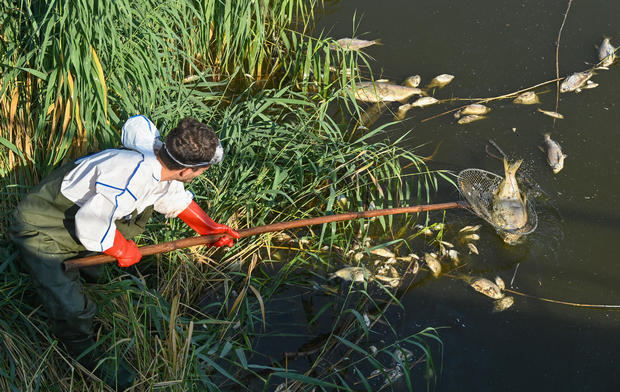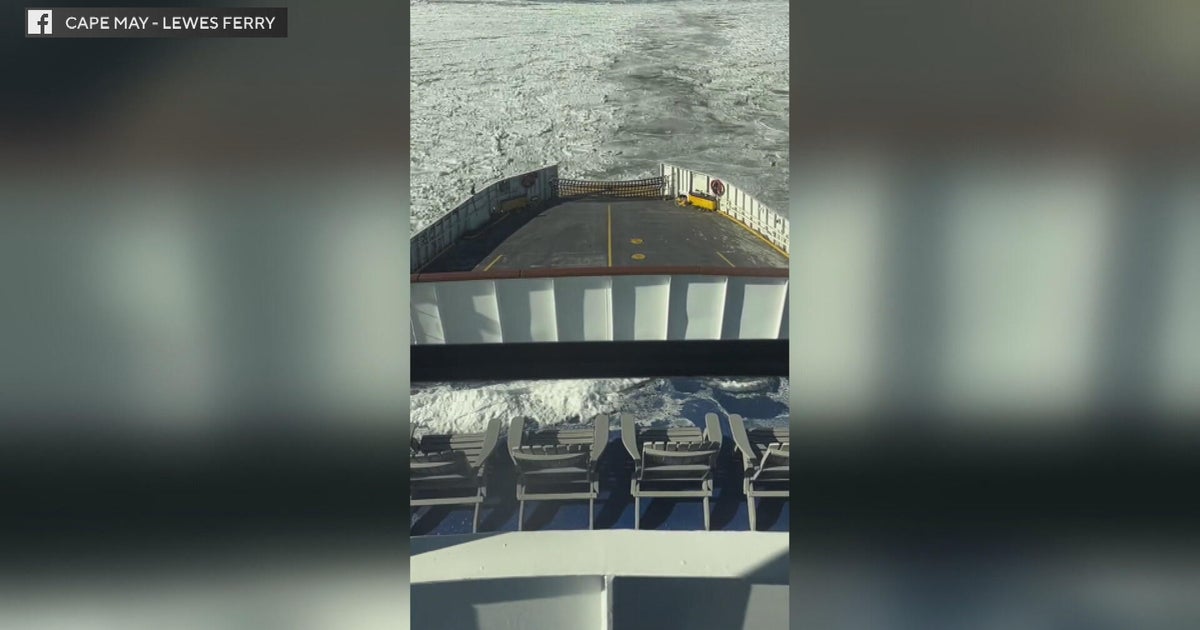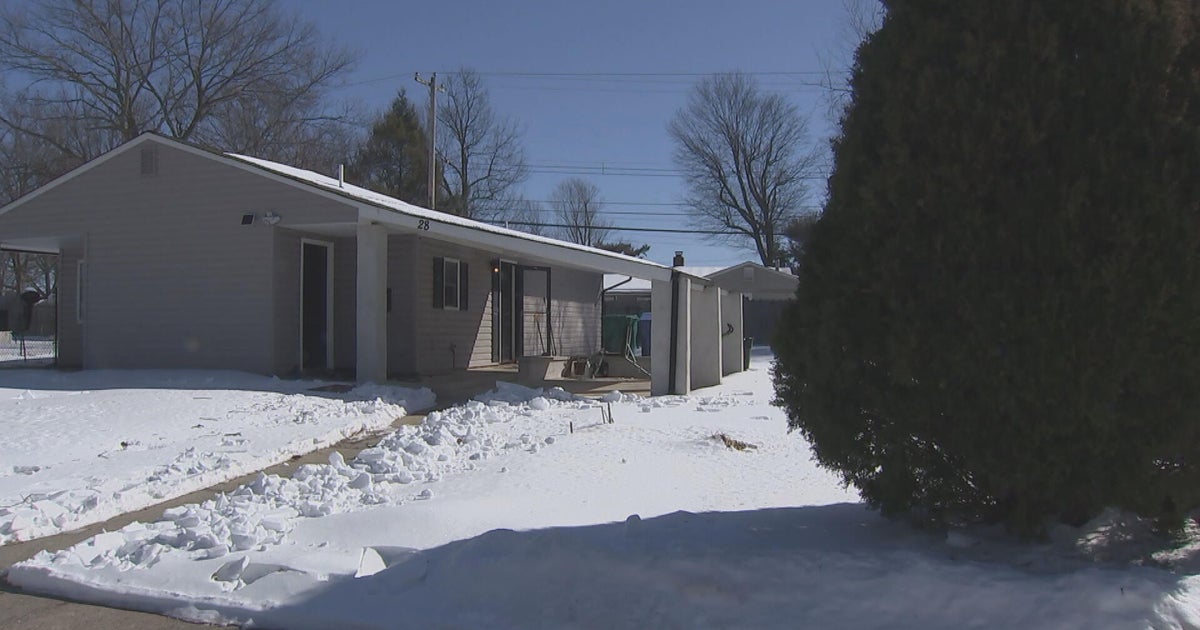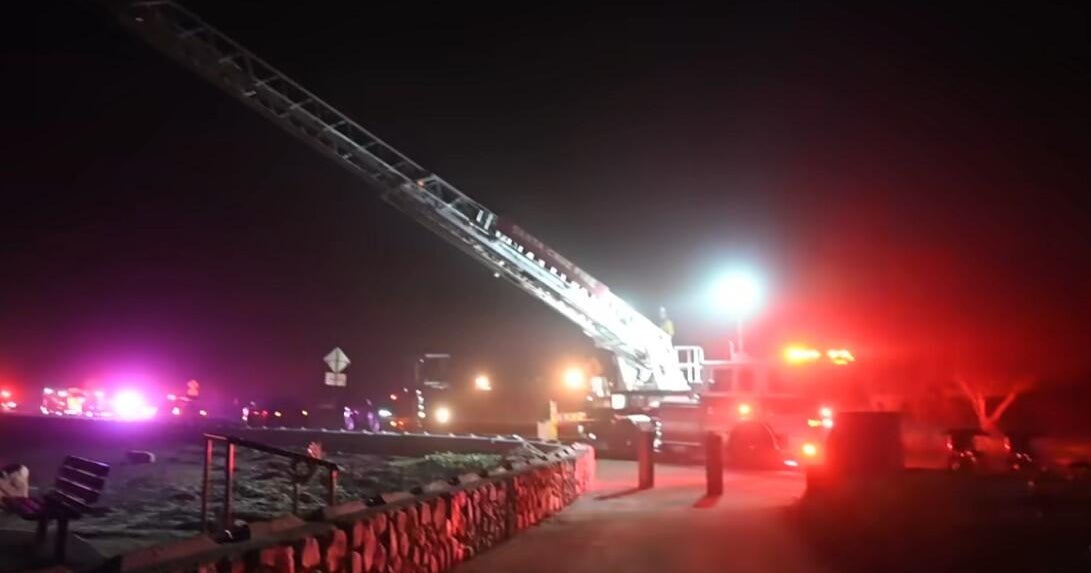Toxic algae blamed for 300 tons of dead fish in Oder River on German-Polish border: "A man-made environmental disaster"
Germany said Friday that mass fish deaths in the Oder River were a "man-made environmental disaster," blaming toxic algae growth sparked by the introduction of salt into the waters.
Presenting a report into the disaster that saw at least 300 tons of dead fish pulled from the river in Germany and Poland this summer, the German environment ministry said the most likely cause was "a sudden increase in salinity."
The "introduced salt" led to "massive proliferation of a brackish water algae that is toxic to fish," it said.
However, "due to a lack of available information, the experts had to leave open what caused the unnaturally high salt content," it added.
German Environment Minister Steffi Lemke said it was clear that "human activity" was to blame.
Polish authorities had on Thursday released a separate report that also blamed toxic algae for the fish deaths. More than 500 firefighters took part in the efforts to clean up the mess on the Polish side of the river this summer.
But the Polish report said the disaster had most likely been caused by poor water quality as a result of high temperatures and very low water levels over the summer.
Poland and Germany have long been at odds over the disaster.
Berlin initially accused Warsaw of failing to communicate the problem, while Poland slammed Germany for spreading "fake news" about the discovery of herbicides and pesticides in the water.
A report in Germany's Der Spiegel magazine on Friday accused Polish authorities of failing to cooperate with their German counterparts to investigate the fish deaths.
Polish authorities became "more and more reserved, in some cases almost secretive", Lilian Busse, the head of the investigation, was cited as saying.
The Spiegel report said Greenpeace investigations had shown high salt levels at a copper mine in the city of Glogow may have contributed to the disaster.
"It is obvious to me that the Polish government wants to cover up the causes of the fish kill in the Oder," Ralph Lenkert, environmental policy spokesman for the far-left Die Linke party, told the magazine.
In August, Sascha Maier, a water policy officer at the BUND environmental organization, told CBS News that it was not only fish affected. Many other animals, including mussels and small vertebrates in and around the river have also suffered, Maier said.
The ecosystem was already under great stress this summer, Maier told CBS News, thanks to extreme heat and hardly any rainfall. Those conditions very likely exacerbated the problem, at least, because the lower water volume means a higher concentration of any toxic substances present.
"Because of the low water, we have a warm Oder River," he said. That alone can cause significant physical stress for many fish species, and "if pollution is then added, they are less resistant."
Anna Noryskiewicz contributed to this report.









